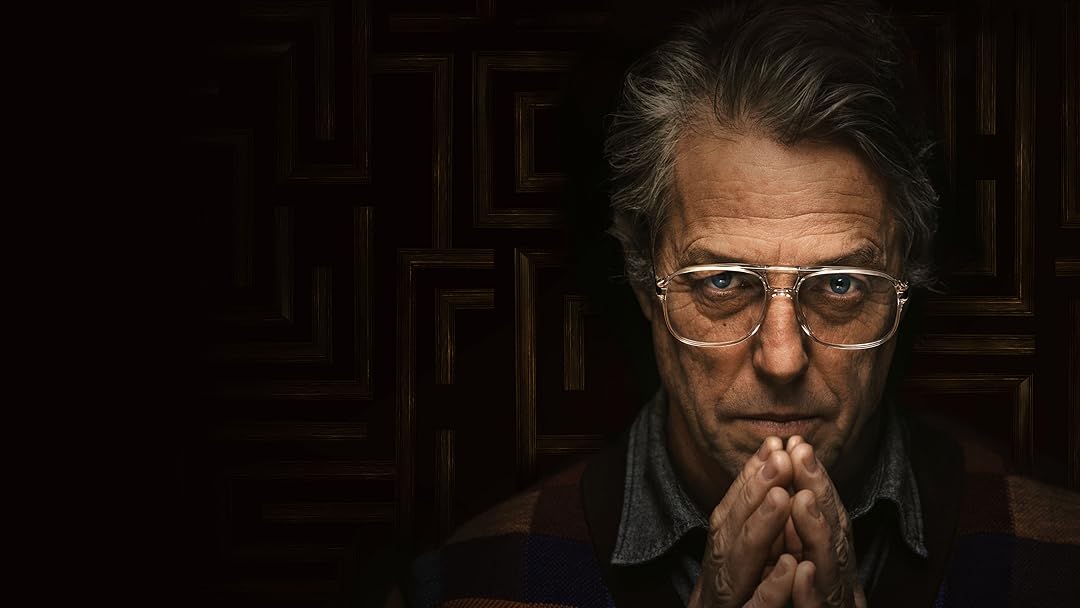🎬 Film Overview and Plot
Heretic, directed and written by Scott Beck and Bryan Woods (known for A Quiet Place and 65), is a taut psychological horror released by A24 in late 2024. Set within the claustrophobic walls of one house, it explores a sinister intellectual game between two young Mormon missionaries and a charming but dangerous man, Mr. Reed, played by Hugh Grant.
Sophie Thatcher (as Sister Barnes) and Chloe East (as Sister Paxton) arrive at Mr. Reed’s home to preach. A storm rages outside, and Reed invites them in for blueberry pie—a facade shielding his deeper intentions. Once inside, the duo realize they’re trapped: no cell signal, locked doors, and no pie—just Reed’s sinister psychological games.
Reed tests their faith using theological debates, pop‑culture analogies (including Monopoly), and subtle mind games. The tension intensifies as he mentally dissects their beliefs and pushes them into moral extremity. Eventually, the psychological battle turns physical, horror unfolds, and the missionaries fight back. The climactic sequence thrusts them into a “Belief vs Disbelief” choice, descending into a nightmarish basement, where Reed stages a mock resurrection and tests their faith yet again .
The film’s ending is deliberately ambiguous—marked by a butterfly dream sequence that leaves viewers questioning whether characters are alive, dead, or caught in a psychological limbo.
🎭 Performances and Characters
Hugh Grant – Mr. Reed
Widely praised across reviews, Grant delivers a chilling performance that subverts his romantic‑comedy image. He remains calm, polite, and intellectual—an unsettling blend of charm and menace. Critics characterize this as “career‑best work,” demonstrating how Grant leverages polite sociability as a weapon.
Sophie Thatcher and Chloe East – Sisters Barnes & Paxton
Thatcher and East bring depth to their roles, each evolving from devout and somewhat naive into resourceful survivors. Their contrasting personalities—Barnes more assertive, Paxton more introspective—are portrayed with nuance.
🧠 Themes & Symbolism
Faith vs. Doubt
At its core, Heretic is a philosophical battleground. Reed’s elaborate traps force the missionaries to confront the fragility of faith. Through theological debates and symbolic devices, the film wrestles with the nature of belief—particularly how faith can be both a source of strength and vulnerability.
Charm as a Weapon
Reed weaponizes his gentlemanly demeanor—pleasant, witty, and conversational—to lure his victims into complacency, then strip their defenses away. The horror emerges not from jump scares, but from the slow realization of betrayal cloaked in civility .
Psychological Entrapment
The house itself becomes a labyrinth—Reed masks physical doors with polite conversation and intellectual games, until isolation is almost poetic. The film’s pacing has a “stage‑like” tension, echoing chamber dramas like Sleuth .
Ambiguity & Afterlife
The butterfly motif and ambiguous ending invite multiple interpretations. Critics and Chloe East herself highlight how the film blurs the line between life, death, and faith’s aftermath.
🎥 Style & Direction
Dialogue-Driven Horror
Unlike conventional horrors, Heretic thrives on intellectual tension—dense theological exchanges and social politeness that slowly unravel. This cerebral horror approach earns it praise for avoiding cheap scares empireonline.com+1rottentomatoes.com+1.
A24’s Sophisticated Minimalism
The subdued color palette, shadow-rich cinematography by Chung Chung-hoon, and restrained score by Chris Bacon contribute to tense and haunting atmosphere.
Chamber (Bottle) Horror Setup
Set almost entirely inside one house, reminiscent of stage thrillers, heightens claustrophobia and emotional intensity. Early scenes are compared to high‑stakes “cat‑and‑mouse tennis”
📈 Reception & Critique
Critical Acclaim
- Rotten Tomatoes: 91% critic score
- Hugh Grant earned award nominations (Golden Globes, BAFTA, Critics’ Choice)
Praise Highlights
- Grant’s performance: “genuinely chilling” and “a horror natural”
- Quiet, intellectual horror draws comparisons to A Quiet Place and stage thrillers .
- Chamber-style minimalist setup creates focused tension .
Criticisms
- Some felt the ending was rushed or climactic scenes undermined earlier build-up.
- Skeptics argued the theological debates can come off as combative or superficial .
Audience Feedback
Reddit threads praised the tension and performances, particularly Grant’s, while noting some dissatisfaction with the final act’s pacing .
🎭 Cultural Significance
Expanding Religious Horror
Heretic stands out in a genre often preoccupied with Catholic imagery. Instead, it critiques broader faith dynamics through the lens of Mormon missionaries—an underrepresented narrative choice .
Hugh Grant’s Evolution
Grant’s transformation from rom-com staple to psychologically menacing antagonist marks a bold career shift, widely regarded as revelatory .
Theology Meets Horror
Rather than demon possessions, the film explores spiritual control through debate and coercion. It raises questions about faith’s vulnerability, manipulation, and personal conviction.
🧩 Conclusion
Heretic is a chilling, cerebral horror that trades in moral and intellectual conflict over gore. Anchored by Grant’s unexpectedly terrifying performance and the dynamic portrayals by Thatcher and East, it crafts a tense microcosm of faith, doubt, and psychological control. While its ending may frustrate some, the film earns a lasting presence for its layered dialogue, thematic ambition, and stylish restraint.

